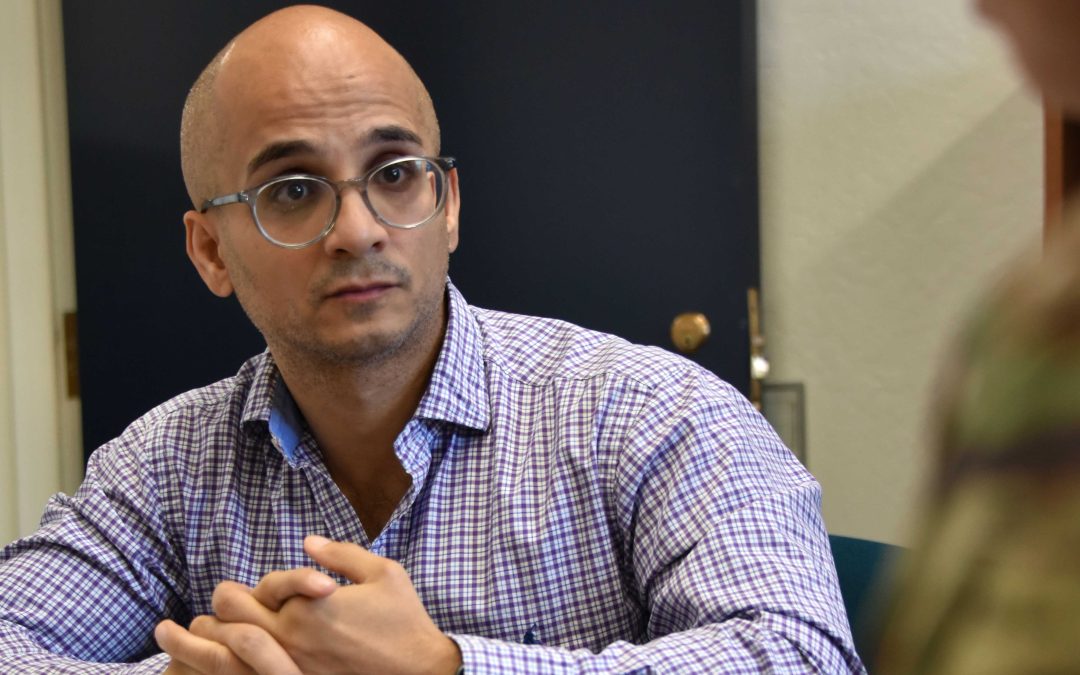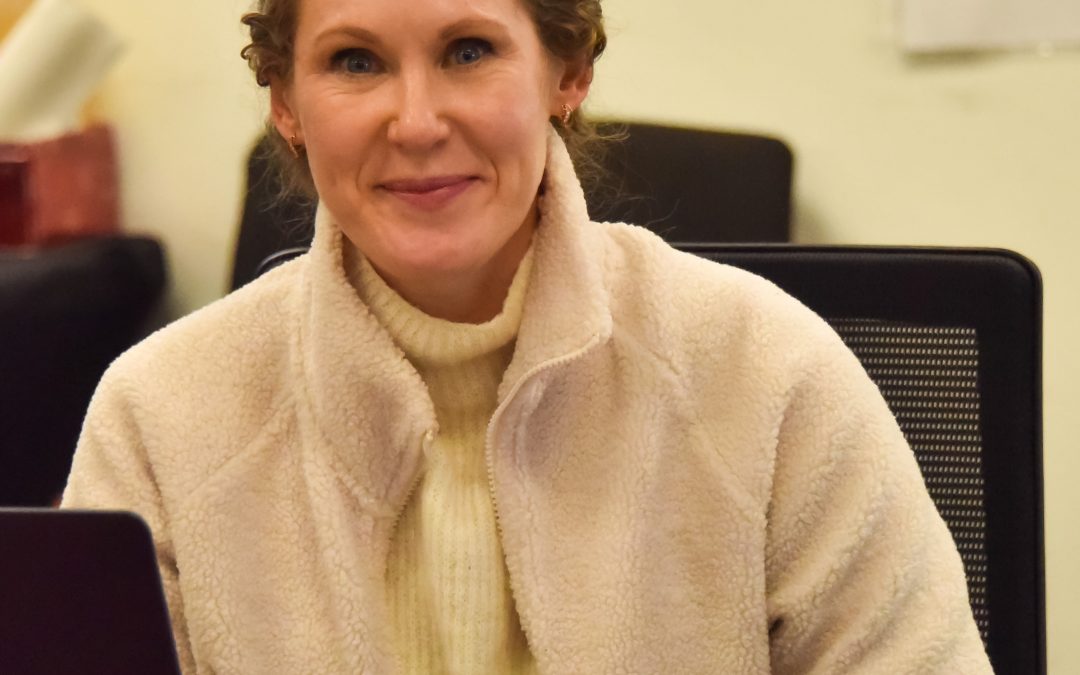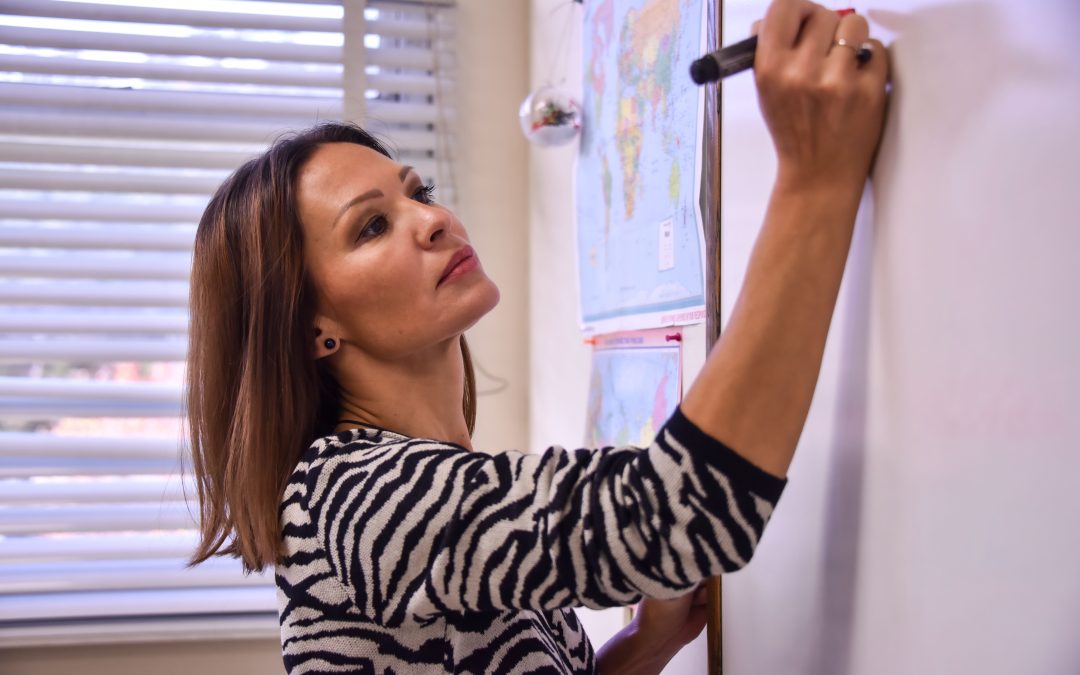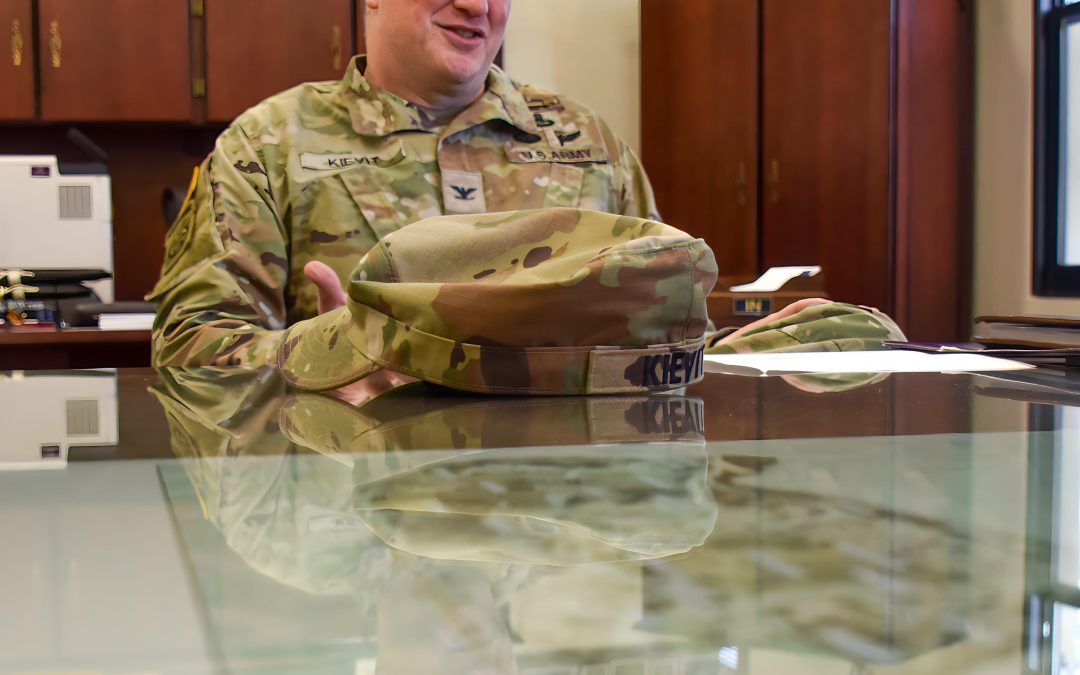By Natela Cutter
On his first visit to the Defense Language Institute Foreign Language Center since taking charge of the U.S. Army Intelligence Center of Excellence at Fort Huachuca, Arizona, Brig. Gen. Anthony Hale and his team wanted to learn more about the Institute’s ability to modify training for students during the pandemic.
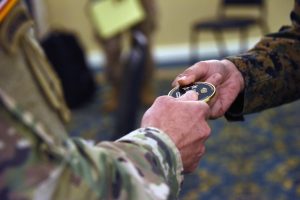
Brig. Gen. Hale awards a coin to thank DLIFLC staff for their hard work during the COVID-19 pandemic.
“What we have seen here at DLI…is how it has adapted to the COVID situation, gone to more virtual training, and how they were able to adapt to virtual training in a very short time using laptop computers and iPads and use Microsoft Teams to do that instruction,” said Hale.
The visit on Jan. 4th took place just after the winter holiday break and included lunch at the Presidio of Monterey’s new dining facility, Chay Hall, and a walk-through of nearby military barracks where students are housed two to a room.
“This is only their second assignment after Basic Training, and they are transitioning from civilian to military life, which is a little bit different than being in high school or being in college,” explained Hale, speaking about the students.
Later in the day, Hale made a point to visit with senior and junior military leadership that included all four branches of the military service, though DLIFLC is Army-run.
“As a leader I want my subordinate leaders to be positively intrusive with their Soldiers, with their Sailors, their Airmen and their Marines. What that means is knowing their Soldiers, knowing what they are doing in the classroom, but [also] knowing a little bit about their family, about the issues they are dealing with,” he said.
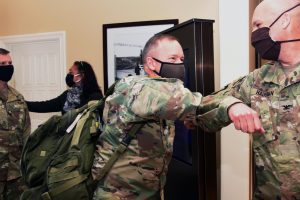
Brig. Gen. Anthony Hale, Commanding General of the U.S. Army Intelligence Center of Excellence at Fort Huachuca, Arizona, spent several hours acquainting himself with the Defense Language Institute mission, as he toured the installation barracks, ate at the new Chay dinning facility and spoke with joint service leadership about the challenges they face with COVID-19.
Hale spoke about the need to teach new service members, regardless of branch, how to be good leaders.
“COVID has affected us in many ways, but one is the isolation. And going to virtual training, our students stay in their rooms for seven hours a day and do homework three hours [per night]. They are isolated from their peers, their leadership – but that positively intrusive leader is the one who is always there, who is checking up on them who is talking to them in a meaningful way and just really being there for them.”
In his parting remarks, Hale said he thought that the situation with the pandemic was reaching a turning point.
“I think the next couple of months are going to be tough with the COVID environment across the nation. But I think that we, as the Department of Defense and as the military, are taking some good measures to protect ourselves as much as possible. And that [means] protecting not only our student population, our young Soldiers, but also our faculty, our civilians [and their] dependents,” Hale concluded.

